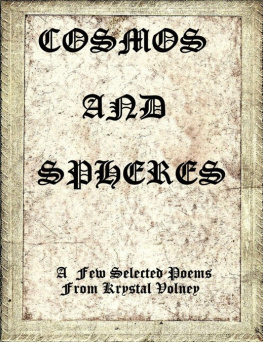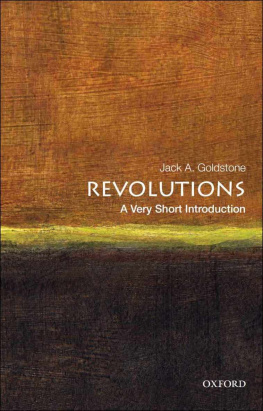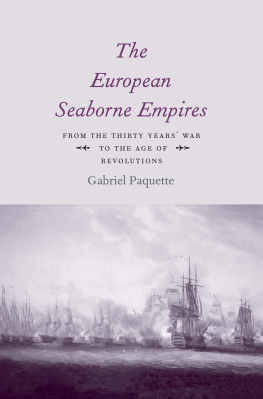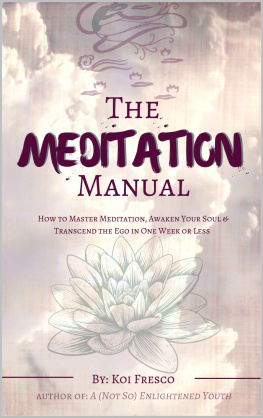C.-F. Volney - The Ruins, or, Meditation on the Revolutions of Empires and the Law of Nature
Here you can read online C.-F. Volney - The Ruins, or, Meditation on the Revolutions of Empires and the Law of Nature full text of the book (entire story) in english for free. Download pdf and epub, get meaning, cover and reviews about this ebook. year: 2010, genre: Science. Description of the work, (preface) as well as reviews are available. Best literature library LitArk.com created for fans of good reading and offers a wide selection of genres:
Romance novel
Science fiction
Adventure
Detective
Science
History
Home and family
Prose
Art
Politics
Computer
Non-fiction
Religion
Business
Children
Humor
Choose a favorite category and find really read worthwhile books. Enjoy immersion in the world of imagination, feel the emotions of the characters or learn something new for yourself, make an fascinating discovery.
The Ruins, or, Meditation on the Revolutions of Empires and the Law of Nature: summary, description and annotation
We offer to read an annotation, description, summary or preface (depends on what the author of the book "The Ruins, or, Meditation on the Revolutions of Empires and the Law of Nature" wrote himself). If you haven't found the necessary information about the book — write in the comments, we will try to find it.
C.-F. Volney: author's other books
Who wrote The Ruins, or, Meditation on the Revolutions of Empires and the Law of Nature? Find out the surname, the name of the author of the book and a list of all author's works by series.
The Ruins, or, Meditation on the Revolutions of Empires and the Law of Nature — read online for free the complete book (whole text) full work
Below is the text of the book, divided by pages. System saving the place of the last page read, allows you to conveniently read the book "The Ruins, or, Meditation on the Revolutions of Empires and the Law of Nature" online for free, without having to search again every time where you left off. Put a bookmark, and you can go to the page where you finished reading at any time.
Font size:
Interval:
Bookmark:
Project Gutenberg's The Ruins, by C. F. [Constantin Francois de] Volney
This eBook is for the use of anyone anywhere at no cost and with
almost no restrictions whatsoever. You may copy it, give it away or
re-use it under the terms of the Project Gutenberg License included
with this eBook or online at www.gutenberg.org
Title: The Ruins
Author: C. F. [Constantin Francois de] Volney
Release Date: May 3, 2006 [EBook #1397]
Language: English
*** START OF THIS PROJECT GUTENBERG EBOOK THE RUINS ***
Produced by Donald Lainson; David Widger
AND
THE LAW OF NATURE,
by C. F. VOLNEY,
L'ACADEMIE FRANCAISE, ET DE PLUSIEURS AUTRES SOCIETES SAVANTES.
DEPUTY TO THE NATIONAL ASSEMBLY OF 1789, AND AUTHOR OF "TRAVELS IN EGYPT AND SYRIA," "NEW RESEARCHES ON ANCIENT HISTORY," ETC.
TO WHICH IS ADDED
VOLNEY'S ANSWER TO DR. PRIESTLY, A BIOGRAPHICAL NOTICE BY COUNT DARU, AND THE ZODIACAL SIGNS AND CONSTELLATIONS BY THE EDITOR.
I will cherish in remembrance the love of man, I will employ myself on the means of effecting good for him, and build my own happiness on the promotion of his.Volney.
Having recently purchased a set of stereotyped plates of Volney's Ruins, with a view of reprinting the same, I found, on examination, that they were considerably worn by the many editions that had been printed from them and that they greatly needed both repairs and corrections. A careful estimate showed that the amount necessary for this purpose would go far towards reproducing this standard work in modern type and in an improved form. After due reflection this course was at length decided upon, and all the more readily, as by discarding the old plates and resetting the entire work, the publisher was enabled to greatly enhance its value, by inserting the translator's preface as it appeared in the original edition, and also to restore many notes and other valuable material which had been carelessly omitted in the American reprint.
An example of an important omission of this kind may be found on the fifteenth, sixteenth, and seventeenth pages of this volume, which may be appropriately referred to, in this connection. It is there stated, in describing the ancient kingdom of Ethiopia, and the ruins of Thebes, her opulent metropolis, that "There a people, now forgotten, discovered, while others were yet barbarians, the elements of the arts and sciences. A race of men, now rejected from society for their sable skin and frizzled hair, founded on the study of the laws of nature, those civil and religious systems which still govern the universe."
A voluminous note, in which standard authorities are cited, seems to prove that this statement is substantially correct, and that we are in reality indebted to the ancient Ethiopians, to the fervid imagination of the persecuted and despised negro, for the various religious systems now so highly revered by the different branches of both the Semitic and Aryan races. This fact, which is so frequently referred to in Mr. Volney's writings, may perhaps solve the question as to the origin of all religions, and may even suggest a solution to the secret so long concealed beneath the flat nose, thick lips, and negro features of the Egyptian Sphinx. It may also confirm the statement of Dioderus, that "the Ethiopians conceive themselves as the inventors of divine worship, of festivals, of solemn assemblies, of sacrifices, and of every other religious practice."
That an imaginative and superstitious race of black men should have invented and founded, in the dim obscurity of past ages, a system of religious belief that still enthralls the minds and clouds the intellects of the leading representatives of modern theology,that still clings to the thoughts, and tinges with its potential influence the literature and faith of the civilized and cultured nations of Europe and America, is indeed a strange illustration of the mad caprice of destiny, of the insignificant and apparently trivial causes that oft produce the most grave and momentous results.
The translation here given closely follows that published in Paris by Levrault, Quai Malaquais, in 1802, which was under the direction and careful supervision of the talented author; and whatever notes Count Volney then thought necessary to insert in his work, are here carefully reproduced without abridgment or modification.
The portrait, maps and illustrations are from a French edition of Volney's complete works, published by Bossange Freres at No. 12 Rue de Seine, Paris, in 1821,one year after the death of Mr. Volney. It is a presentation copy "on the part of Madame, the Countess de Volney, and of the nephew of the author," and it may therefore be taken for granted that Mr. Volney's portrait, as here given, is correct, and was satisfactory to his family.
An explanation of the figures and diagrams shown on the map of the Astrological Heaven of the Ancients has been added in the appendix by the publisher.
New York, January 3, 1890.
To offer the public a new translation of Volney's Ruins may require some apology in the view of those who are acquainted with the work only in the English version which already exists, and which has had a general circulation. But those who are conversant with the book in the author's own language, and have taken pains to compare it with that version, must have been struck with the errors with which the English performance abounds. They must have regretted the loss of many original beauties, some of which go far in composing the essential merits of the work.
The energy and dignity of the author's manner, the unaffected elevation of his style, the conciseness, perspicuity and simplicity of his diction, are everywhere suited to his subject, which is solemn, novel, luminous, affecting,a subject perhaps the most universally interesting to the human race that has ever been presented to their contemplation. It takes the most liberal and comprehensive view of the social state of man, develops the sources of his errors in the most perspicuous and convincing manner, overturns his prejudices with the greatest delicacy and moderation, sets the wrongs he has suffered, and the rights he ought to cherish, in the clearest point of view, and lays before him the true foundation of moralshis only means of happiness.
As the work has already become a classical one, even in English, and as it must become and continue to be so regarded in all languages in which it shall be faithfully rendered, we wish it to suffer as little as possible from a change of country;that as much of the spirit of the original be transfused and preserved as is consistent with the nature of translation.
How far we have succeeded in performing this service for the English reader we must not pretend to determine. We believe, however, that we have made an improved translation, and this without claiming any particular merit on our part, since we have had advantages which our predecessor had not. We have been aided by his labors; and, what is of still more importance, our work has been done under the inspection of the author, whose critical knowledge of both languages has given us a great facility in avoiding such errors as might arise from hurry or mistake.
Paris, November 1, 1802.
* Published by T. Allman, 42 Holborn Hill, London, 1851.
The plan of this publication was formed nearly ten years ago; and allusions to it may be seen in the preface to Travels in Syria and Egypt, as well as at the end of that work, (published in 1787). The performance was in some forwardness when the events of 1788 in France interrupted it. Persuaded that a development of the theory of political truth could not sufficiently acquit a citizen of his debt to society, the author wished to add practice; and that particularly at a time when a single arm was of consequence in the defence of the general cause.
Font size:
Interval:
Bookmark:
Similar books «The Ruins, or, Meditation on the Revolutions of Empires and the Law of Nature»
Look at similar books to The Ruins, or, Meditation on the Revolutions of Empires and the Law of Nature. We have selected literature similar in name and meaning in the hope of providing readers with more options to find new, interesting, not yet read works.
Discussion, reviews of the book The Ruins, or, Meditation on the Revolutions of Empires and the Law of Nature and just readers' own opinions. Leave your comments, write what you think about the work, its meaning or the main characters. Specify what exactly you liked and what you didn't like, and why you think so.








